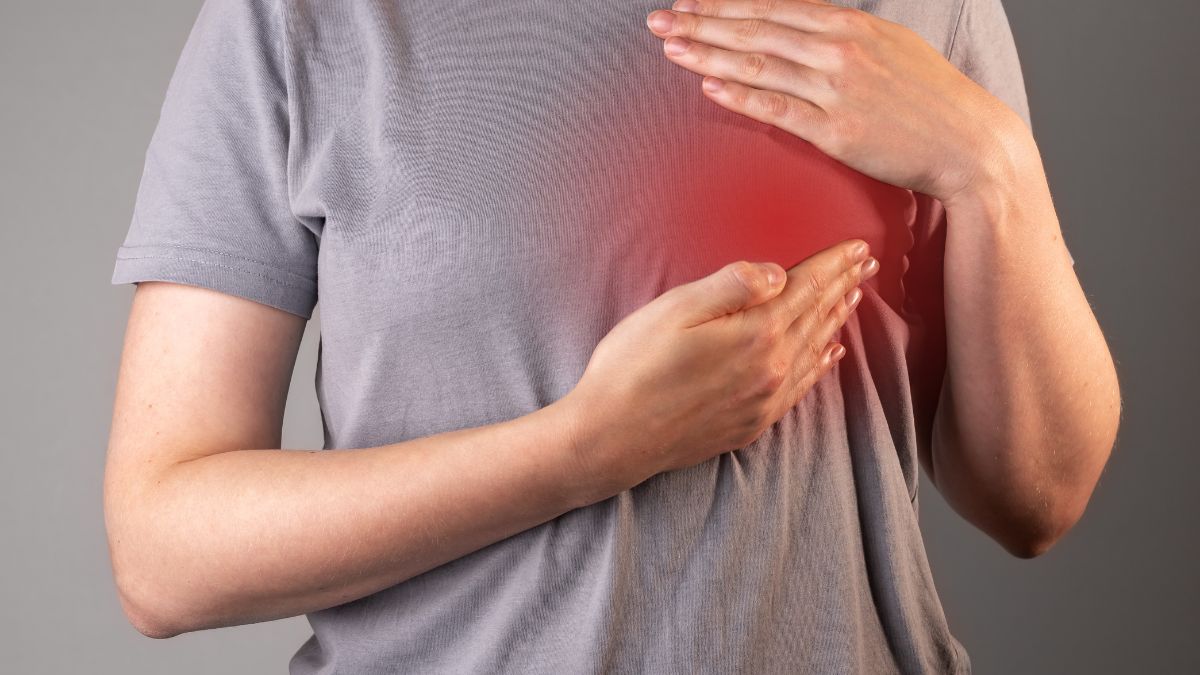- By Prerna Targhotra
- Fri, 04 Oct 2024 04:56 PM (IST)
- Source:JND
Breast size alone does not determine the risk of developing breast cancer. It's a common misconception that larger breasts may have a higher risk, but this isn’t true. Breast cancer risk is influenced more by genetic factors, hormonal changes, age, lifestyle choices and certain medical conditions rather than the size of the breasts.
In a conversation with Jagran English, Dr Prateek Varshney, Director and Unit Head - Surgical Oncology, Fortis Hospital Shalimar Bagh explained whether breast size can increase your breast cancer risk or it is just a myth.
According to Dr Varsheny, there are key observations regarding breast size and cancer symptoms. An asymmetrical increase in breast size, where one breast becomes larger than the other, could potentially indicate an underlying issue, including breast cancer. Such changes should never be ignored, as they may signal disease progression or other conditions that require immediate evaluation.
Breast size tends to change naturally throughout a woman's life, due to hormonal fluctuations, pregnancy, lactation, or weight changes. In younger women, breast tissue is typically denser, which can sometimes make it harder to detect abnormalities during routine screenings. As a woman ages, her breast tissue usually becomes less dense, making some diagnostic tools, like mammograms, more effective.

Can Breast Size Cause Breast Cancer (Image Credits: Canva)
Screening practices are adapted according to breast size and density. For younger women with dense breasts, ultrasound is often preferred for breast evaluation. Mammography, on the other hand, becomes the go-to screening method as women age, especially after 40, since it offers better imaging for less dense breast tissue. In women with larger, pendulous breasts, additional imaging techniques, such as MRI, may be recommended to provide a clearer view of any abnormalities.
Ultimately, the most important factor in reducing breast cancer risk is regular screening and early detection. Regardless of breast size, timely check-ups, self-examinations, and diagnostic investigations are critical for catching breast cancer in its early stages when treatment is most effective.
ALSO READ: Can Obesity And High Blood Pressure Lead To Stroke? Doctor Explains
ALSO READ: Breast Cancer In Teenagers: Expert Lists Signs, Symptoms, Risk Factors And Early Detection

